Peruse any ranking of Stephen King adaptations - like, say, at Buzzfeed, SlashFilm, Vulture, or Rolling Stone - and you'll invariably find 1993's Needful Things listed near the middle, far removed from the dregs of Trucks, The Graveyard Shift and Cell, but nowhere near the heights of Misery, Stand By Me and The Shawshank Redemption. It's depiction of a small town undone by a series of Faustian bargains is about as mid-tier Stephen King as they came, neither bad nor great, elevated mostly by the only two actors in the cast, Max Von Sydow and J.T. Walsh, who seem to know exactly what kind of movie they're in.
My Personal Experience with Needful ThingsI didn't think that 25 years ago. Back then, I adored Needful Things, largely because it was the first time there was a new Stephen King movie based on a book I'd already read. Finally, I could experience the grown-up joy of watching something and thinking, "Huh. That's not how it is in the book." Okay. When I write it out like that it admittedly doesn't sound super amazing, but I found it plenty invigorating at the time.
Like a lot of people my age, my horror novel reading advanced in stages. First there was R.L. Stine and Goosebumps. Then there was Christopher Pike and his slightly harder-edged stories about teenagers. Finally, there was Stephen King, the infamously prolific author of so many attention-grabbing novels (haunted car, spooky hotel, end of the world disease outbreak, zombie pets back from the cemetery, and so on) with often intimidating lengths ( The Stand 's over a thousand pages long!). Thus, to read your first Stephen King book, often as a hand-me down from an older sibling, was a real rite of passage for budding horror fans born in the 1980s.
Needful Things was...[drum roll please]...not that book for me [awkward record scratch]. It was 700 pages long! My brother could hit me in the face with his paperback copy and it would hurt like a sonofabitch. Like I'm really going to make that my first adult book to read. No, sir. I'll take The Shining first, thank you very much. Then I'll sample "The Body" short story that inspired Stand By Me. Then I'll be ready to revisit some of those same characters in Needful Things since both stories take place in Castle Rock.
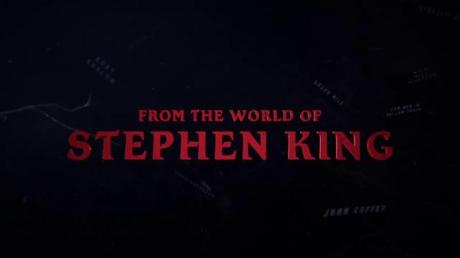
Unbeknownst to me at the time, Needful Things was meant, in fact, to be the final Castle Rock story. King has since set several novellas there, but in 1991 the fictional town had already formed the backdrop to The Dead Zone, Cujo, and The Dark Half. Coupled with the novels King set in fellow fictional Maine towns Derry and Jerusalem's Lot, the literature world had responded with a rush of imitation novels also set in the Pine Tree State. This deeply upset Maine-born-and-raised King since the majority of these works came from authors who lived outside the state or had never even been there. In that environment, it was time to take Castle Rock off the market. What better way to do that than to invite the devil into town?
The novel King produced is hardly unique. As Castle Rock Crusaders argued, " Needful Things was widely panned by critics as a sort of Stephen King Madlib where the enormous cast of characters, each with their own unique obsessions and secret desires, goes through the same Sméagol-like transformation and paired characters develop their incipient hatreds, rivalries, and jealousies until the town implodes in an orgy of violence."
Morever, the plot is just a variation on Ray Bradbury's Something Wicked This Way Comes, Richard Matheson's "The Distributor" and even King's own Salem's Lot, with a small town ultimately undone by the arrival of a new antiques store run by a mysterious stranger. In this case, the store's proprietor is the elderly Leland Gaunt, never outright named the devil but, come on, we know who he's supposed to be.
Or do we?
King's actual inspiration for the story was less biblical than it might seem. "I thought I'd written a satire of Reaganomics in America," he said, as quoted in Lisa Rogak's Haunted Heart: The Life and Times of Stephen King. "The idea being that this man came to a small town, opened it up like a junk shop and you could buy anything that you wanted, but you ended up paying with your soul."
Yeaaaaaaah.....I did not get that. No one really did at the time. I just thought it was a book about the devil.
Rob Reiner probably thought the same thing.
"It's about good and evil, and it stars the devil" - They Make the Movie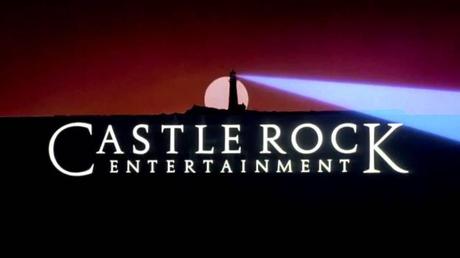
On Needful Things, King's cut of the box office gross amounted to just half a million dollars, a pittance compared to the twenty-five million he would later make from The Green Mile.
Perhaps that's because adapting a 420-page novel about a woman torturing her favorite author in a secluded cabin was a far easier task than tackling the story of an entire town undone by the arrival of the devil.
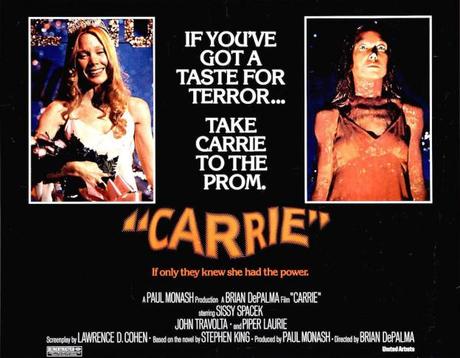
Not surprisingly, the first screenwriter Castle Rock turned to, Carrie/It: Part 1's Lawrence D. Cohen, couldn't pull it off. What he handed in was incredibly faithful to the novel, meaning it was also unfilmmable as a feature-length movie. The next man up, The Adventures of Buckaroo Banzai director and Big Trouble in Little China 's co-writer W.D. Richter, had never even read a Stephen King novel before and constantly wrestled with the obvious question: Why not just make this a mini-series?
"I shuddered thinking of how I had to go about it," Richter told Fangoria. "It's really daunting if you try to be too systematic about it, because you start to think it can't be done and should probably be a miniseries. So I just started at the front and tried to economise as I went along. If a condensation occurred to me - a way to combine or skip over something - I'd take it as it came. I worked through a long first draft, which was still considerably shorter than the book, just to feel it was starting to be a movie. And than that would get chewed over by everybody concerned, and we'd go at it again."
As a result, important characters from the novel, like Ace (a carry-over from Kiefer Sutherland's version in Stand By Me), were dropped. Key settings and entire backstories (like Sheriff Pangborn mourning his lost wife and child or Polly hiding a secret from her past in San Francisco) were changed entirely. The finale was completely redone.
Richter initially did this work with Breaking Away director Peter Yates, but he quickly yielded the director's chair and chose to executive produce the film instead.
After that, Castle Rock's President Martin Shaffer called up Fraser C. Heston, who had directed second unit for them on City Slickers. In Fraser's telling on the Needful Things Blu-Ray commentary, he was literally sitting in his editing suite finishing up work on his father's docu-series Charlton Heston Presents The Bible when he received the call. The opportunity to make his feature-length debut was so enticing he hopped across town just 15 minutes later to officially take the job.
He went straight to work on pre-production in August 1992, scouting locations in Canada and partnering with Richter on paring down the script before contributing an uncredited dialogue polish of his own. Leland Gaunt's line about Jesus ("The young carpenter from Nazareth? I know him well. Promising young man. He died badly"), for example, comes from Fraser, not Richter.
The production ultimately settled on using Gibsons Landing, British Columbia as its Castle Rock. "We needed a single location where all the action would take place," explained Heston, "thereby creating a strong visual consistency." A small coastal town of 2,500, Gibsons Landing had previously been home to the long-running Canadian series The Beachcombers. So, many of the locals were easily capable of pitching in, either working on the crew or appearing as extras. There was also a sudden rush on all of Stephen King's novels in the city's only bookstore.
The cast was largely filled out with character actors and Stephen King vets. Bonnie Bedelia, cast as arthritic diner owner Polly, had co-starred in Salem's Lot, predating her more infamous turns as Die Hard's wife. Ed Harris, just on the cusp of breaking out, had already been in Creepshow and would cameo in The Stand a year later. King actually recommended casting Michael Rooker since he played Sheriff Pangborn in The Dark Half, which had finished filming in 1991 but wasn't released until early 1993, but the studio wanted a bigger name for the part.
For the key part of Gaunt, Fraser flew to Sweden to recruit Max Von Sydow, who would later recall, "I loved Gaunt from the minute Fraser described him to me. I know instantly that portraying him would be an actor's delight-wickedly full of possibilities, full of potential surprises."
The irony of Von Sydow going from playing Jesus (in The Greatest Story Ever Told) and fighting an ancient demon (in The Exorcist) to playing the devil was not lost on all involved. In fact, it only added to the appeal for Von Sydow.
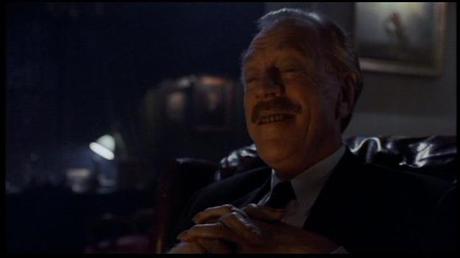
Instead, the film's calling card among horror hounds comes when Amanda Plummer's Nettie comes home to the sight of the flayed corpse of her beloved dog Raider. As Fargas proudly boasted, "The skinned Rottweiler is probably the premiere gore piece in the show. It's gonna be a pretty darn accurate bit of business."
Plummer, in the midst of a hot streak with S o I Married An Axe Murderer, Needful Things and Pulp Fiction all coming out in a 14-month stretch from '93 to '94, was such an animal lover she asked not to see the dead dog prosthetic beforehand. What's in the film is her genuine first reaction to it, and according to Fraser it took her a good half an hour to calm down afterward.
That's as far as Fraser would push it, though. His general approach was to treat Needful Things like a slightly classier Stephen King production. Whereas, for example, the first Castle Rock resident, 11-year-old Brian Rusk, to make a bargain with Gaunt eventually commits suicide in the book, the film makes sure to declare that the suicide was merely attempted, not completed. Also, Fraser didn't want to be restricted to simply executing a series of scares. He was more interested in drawing all of the tense crosswires between the various grudge-baring citizens and the ways they are all being unknowingly manipulated by Gaunt. If he pulled it off, he could deliver a satisfying little horror movie with an explosive finale.
"When edited down to 'movie length,' it is almost indecipherable" - TNT Offers Them a Second ChanceWell, obviously Fraser didn't achieve his goal. Upon release, Needful Things was a commercial and financial dud, grossing a paltry $13m. Janet Maslin seemingly spoke for the majority in her New York Times review: "Though this is by no means the grisliest or most witless film made from one of Mr. King's horrific fantasies, it can lay claim to being the most unpleasant."
Those in the minority who got a kick out of the flick still recognized that which Richter seemingly knew all along but dared not admit: this always needed to be a mini-series, not a movie. In fact, they had enough footage for a mini-series, but Castle Rock forced Fraser to cut nearly an hour of footage. The finished product is thus a movie in which far too many character motivations and backgrounds and necessary linking scenes have clearly been excised.
Three years later, Fraser was offered the chance to reinsert all of the lost footage and convert the film into a two-night mini-series event called More Needful Things. Minus commercials, this version runs 186-minutes and is inarguably the superior version, most significantly adding an entirely new character in the form of Brian Rusk's Elvis-obsessed mom (played by Lisa Blount, who is seen but unheard in the theatrical cut). However, this TV version has never been made available for sale and Fraser doesn't even consider it his director's cut. If he had his way, his ideal cut would simply be 20 minutes longer, not 46.
King disagrees. As he told Hollywood's Stephen King quote, "[ Needful Things] was a special case. The first cut was shown on TNT. I have a copy of it and the length of the film was four hours long. As a four-hour miniseries, it works. When edited down to 'movie length,' it is almost indecipherable because it doesn't have time to tell all the stories and do all the setups. It's a complicated book."
Watching the film again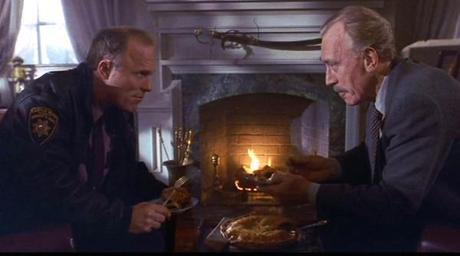
But, theatrical or TV cut, Needful Things is still a flawed adaptation. Max Von Sydow and J.T. Walsh completely commit to the material, and by the end when they've evolved into having a kind of Dracula/Renfield relationship it's a truly camp delight. However, in the theatrical version the film somehow goes nearly an hour in-between Ed Harris appearances even though he's the hero. That's because Richter, faced with so many characters, oddly chose to de-emphasize the two most important ones: Sheriff Pangborn and Polly. Sadly, his director lacked the cinematic chops to paper over this mistake.
As FilmSchoolRejects argued in a recent retrospective, "Both Heston and Ritcher seem fascinated with the violence of King's novel without putting in the work needed to set the stage for seemingly normal people to go after each other with knives; Needful Things is a book about how communities rot from the inside out for decades, and instead, Heston and company throw a few television-grade fantasy sequences our way and hope to call it a day. Like many of King's movies, Needful Things operates under the misguided notion that Leland Gaunt or any other supernatural character is the true source of evil. As Gaunt himself says, however, 'people kill people,' a much more nuanced concept that rarely makes the leap to the screen."
Watching the film now as an adult I see how much of its appeal 25 years ago was rooted in my own youthful naivete. Back then, for example, I completely accepted Polly turning on her fiance when faced with a clearly suspicious orgy of evidence after a series of only half-understood conversations. Now, it's more apparent how abrupt their turn from newly engaged to newly separated leans on the assumption that they would never have an actual adult conversation.
The always-wonky parts of the film are all the wonkier now. Fraser's cinematic device to communicate the magical effect each needful thing has on each person is woefully ineffective. The odd tonal shift between camp satire and Capraesque speechifying just don't work. Ed Harris' final speech absolutely begs to have an excited South Park-like "He's right. He's right!" voice yelling from the crowd to highlight the absurdity. Beyond that, I can't stop seeing the Rick & Morty jokes ("So, you're the devil, right?") or wondering why no one in town was more alarmed by Gaunt's requests for pranks.
Yet, I still have fun with Needful Things. It's just such a weird, surprisingly nasty piece of work from an overqualified cast. A Baptist reverend and Catholic priest duke it out on their front lawn while a church burns down behind them. A sweet, innocent woman is murdered by her husband for no other reason than accidentally calling him "Buster." The devil gets blown up and then walks away unscathed a minute later. Plus, who can ever forget this master class in screenwriting:
The only thing I can't stomach is the sight of Polly being seduced by Gaunt. That story line was gross 25 years ago, and it still is now.
The Rick & Morty Parody ConclusionKing is not particularly fond of the Needful Things novel, remarking "Over the years I've come to think that maybe it just wasn't a very good book." Looking back at the film adaptation 25 years later, I must reach a similar, though less harsh conclusion. Needful Things, as I said at the start, is mid-tier King. But if Leland Gaunt or a Needful Things flyer shows up on Castle Rock anytime soon, well, I wouldn't be opposed.
What are your memories of Needful Things? Let me know in the comments.

